The Notorious Umbrella Assassination of Georgi Markov: The Silence Coup
Bulgarian Communist Power
A Pattern Of Terror?
The fall of the Berlin Wall would have seemed to mark the beginning of the end of the secrets of the Cold War. But we know this to be untrue, in the case of Georgi Markov, one of the most notorious real life whodunnits. There have been no arrests, and Georgi's ghost still looms without rest.
Just like a good spy novel, the characters in the Markov case have multiplied to include residents of several countries, a trail of bodies, and back tracking suspects, as well as major players who are talking without saying much.
Markov's widow, Annabel, who lives in London with their daughter Sasha, have led campaigns to bring the perpetrators to justice, but to no avail.
In Bulgaria, the Markov case has been twisted to suit many political ambitions. In the 1990s, a restless Bulgarian government interfered directly or indirectly with the official investigation in October 1990. The Post-Communist propaganda, which is a blend of half-truths and half-lies, has kind of smudged whatever clear line drawn truth, that was known about Georgi Markov as a person and the true circumstances of his assassination.
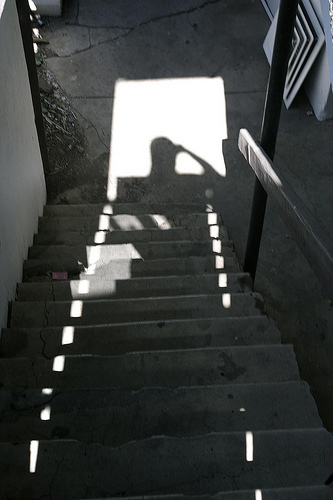
Vladimir Simeonov
Three weeks after Markov's death. Another BBC employee, and fellow political refugee, Vladimir Simeonov was found dead in his home in Plaistow. Simeonov's lifeless body was discovered by a BBC secretary. Who had been sent to see why Simoenov hadn't reported to work. Which was coincidently, at the same Bush House Studios, that Georgi had worked.
Vladimir Simeonov, whos real name was Vladimir Bobchev, had defected to England in 1971. Much like Markov, Simeoniv was working as a World Service program assistant. Only Simeonov was working on a very small youth show. So, Vladimir's voice wasn't on Radio Free Europe.
Rumor has it that Simeonov was not very well liked by many on the BBC staff. In fact, it has been whispered about that he might have been "planted" in Bush House to spy on dissident colleagues, such as Georgi.
By all accounts before Vladimir's death, he looked to be healthy, but gravely scared. Several days after Markov's assassination, an alledged story of a Bulgarian merchant seaman had come to the BBC, and threatened to kill Simeonov.
In the early morning hours of October 1,1978, Simeonov arrived home in a taxi, which was standard BBC practice after working a night shift. The taxi driver, a Mr Simmons, who was located and interviewed by investigators, disclosed that Simeonov had looked "very upset" and, during the ride, had told Mr. Simmons his life story. Several hours later, after Simeonov was dropped-off at his home... he was found dead.
The death looked extremely suspicious, as though Simeonov had been in a hurry to pack all his belongings, in what would be described as a modest two bedroom flat. His body was found lying on the stairs in an unusual position. There was something strange with the lock on the front door: the first of the police to arrive at the scene, were able to enter with just a slight push on the door.
This would be the second death of a Bulgarian in the UK within a month, the Scotland Yard Anti-Terrorist Squad was immediately involved. But after extensive research, the Coroner pronounced Simeonov's death accidental. He had fallen down the stairs and suffocated on his own blood.
Compared to Markov, Simeonov was a much lesser public figure. And except in the minds of a few conspiracy theorists, he would have been largely forgotten. But maybe these "theorists" do have a point? In 1981 a book called, The Yellow Rain: A Journey Through the Terror of Chemical Warfare, writer, Sterling Seagrave suggests that Simeonov might have been a low-grade mole who was eliminated to keep the Bulgarian connection from unravelling further. According to Seagrave, Simeonov's condition could have been induced by an as yet unknown chemical substance, possibly in the form of a spray. Researchers in later years would show that such undetectable poison does exist and that it is surprisingly easy to transport across borders.
The 30 year old Bulgarian's apparent fall would have been dismissed as an accident, but two of Simeonov's fellow countrymen had just come forth with bizarre tales. That were suggestive of a cloak-and-dagger conspiracy, and since one of the two, which was Georgi Markov, a friend of Simeonov's and also a BBC broadcaster, had just been murdered in diabolical fashion, Scotland Yard was asking some very stern questions about Simeonov's "fall."
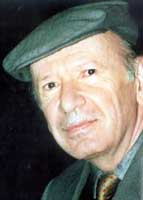
Vladimir Kostov
Just two weeks before Georgi Markov's assassination, Vladimir Kostov, who was another Bulgarian defector that was originally living in France under the guise of a news reporter, and allegedly was a member of the infamous Bulgarian DS. On August 26, 1978, had suffered a similar stinging sensation in his back while leaving the Metro station under the Arc de Triomphe. Kostov,developed a raging fever, but recovered sometime later.
The British examined an X-ray of Kostov's back, acting on a hunch and discovered a pellet identical to that which had been taken from Markov's thigh. Kostov was called to the hospital and the pellet removed.
Because Kostov had been wearing a bulky sweater at the time of his encounter, the pellet had not penetrated as deeply as Markov's. A coating of wax, intended to melt at body temperature had only partly melted and only a small portion of the pellets contents had entered Kostov. The contents of the pellet found in Kostov was identified as the poison ricin.
The following year, Kostov got a permanent job as an editor at Radio Free Europe in Munich. He had admitted that besides being a radio journalist he had been a senior officer in the Bulgarian State Security. Consequently, the regime in Sofia sentenced him to death in absentia.That sentence was still pending when Kostov returned to Bulgaria for the first time after the fall of Communism. No one arrested him. The sentence was later reviewed and repealed. Kostov, now a French citizen, would retire from Radio Free Europe in 1994.
Dinyo Dinev
The assassilant, that Kostov was stabbed with on that day in 1978, in Paris is thought to be Dinyo Dinev, a rather murky Bulgarian figure, who is so far, the only person in the Markov/Kostov story to be indicted on a criminal offense.
Dinev had arrived in France in 1966. In 1978, he was already a naturalized French citizen. He was married to a French woman, and had set up two companies in Paris, to export films and household goods. As a "businessman," Dinev was making frequent trips to Sofia, Bulgaria. In 1979, he was arrested in Paris and accused of espionage.
A French counterintelligence officer testified at the trial, that Dinev had been recruited by the Bulgarian consul as an informat, to report on fellow Bulgarians living in France. The French claim they were aware of Dinev as a double agent. but the French thought his loyalty would lay with the West. Shortly before the attempt on Kostov, Dinev had tried to use his French counterintelligence contacts to locate the Kostov.
The French State Security Court cleared Dinev of deliberate involvement in the Kostov case, but sentenced him to three years in jail for being a spy.
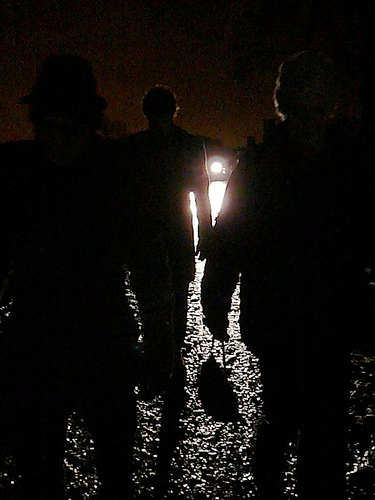
Boris Arsov
Still, yet, one of the most spectacular assassination cases occurred in Denmark. Quite some time before Markov's murder. Boris Arsov, a Bulgarian émigré, disappeared from his home in Arhus, Denmark. He had been publishing a small anti-Communist paper at the Huset Forlag. Two months after he vanished, it had been discovered through his unpaid bills, that he turned up on Bulgarian television. A televised trial was staged against Arsov. The Danish authorities suspected he was kidnapped but no evidence was ever discovered.
The official version of this case remains that Arsov returned to Bulgaria voluntarily.
Boris Arsov was sentenced to 20 years in prison and died in "unclear circumstances" several months after being put in jail.

Robert Maxwell's Money and Bulgaria
Robert Maxwell
Robert Maxwell was born Ján Ludvík Hoch in the small town in Czechoslovakia. Robert Maxwell is most well known for owning many publications...Newspapers, magazines and the like. He was also reported to be an Israeli Spy.
The story goes on and describe how British newspaper owner Robert Maxwell received compromising documents that relate to the Markov case from former Communist Prime Minister, Andrei Lukanov in September 1991.
This alledgely results in Maxwell's murder by MI6 a few months later, which includes supposedly crude media cover-up in Britain. You see, Robert reportedly drowned. He fell off of his yacht. Stories are abound that Maxwell was savagely beaten, and that there was a knife wound to his gut. The damning evidence pointing to Maxwell's murder had appeared in the French press.
After Robert's death, his media empire crashed to ground, with no way of resurrecting it financially.
Lastly, the file is to contain a documented account of an aborted KGB-led Moscow Coup in August 1991, which was triggered by events in Bulgaria.

Vasil Kazashky
In 1986, a Bulgarian émigré, living in the United States was stabbed with an unidentified object and poisoned. The man, Vasil Kazashky, recovered in Dallas, Texas, but his attacker, who had casually offered him a cigarette in a parking lot and then stabbed him with the poison, was never found.
That Dallas incident seemed to have bore a strange resemblance to the Markov murder on Waterloo Bridge.
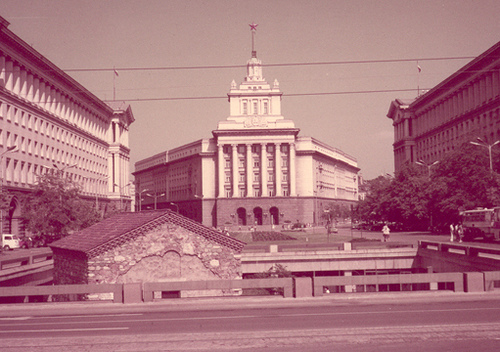
Stepping Over The Bodies
Georgi Markov has been portrayed equally convincingly as a double, or even triple, agent, or as a national saint by his own homeland, Bulgaria. Even now, Bulgarians' opinions remain split, according to their political preference.
Just like in the old days, when "patriots" would not believe that Markov was killed on Communist orders and declared any such allegation a "foreign conspiracy to discredit the fatherland". All who believed the contrary were labelled "traitors". That was the official language used at the time Markov was reading his scripts on Radio Free Europe. And it is a language that is still used in Bulgaria in 2009.
Around the time of the deaths of Markov and Simeonov and the abortive attempt on Kostov, there were other incidents involving Bulgarians and other Eastern European political refugees. Most of these went largely unnoticed.
This does speak of a pattern of terror and intimidation from the Communist Reign in the Eastern Bloc. The cold, dark and imposing spector that watched the residents in the affluent and seemingly secure West.

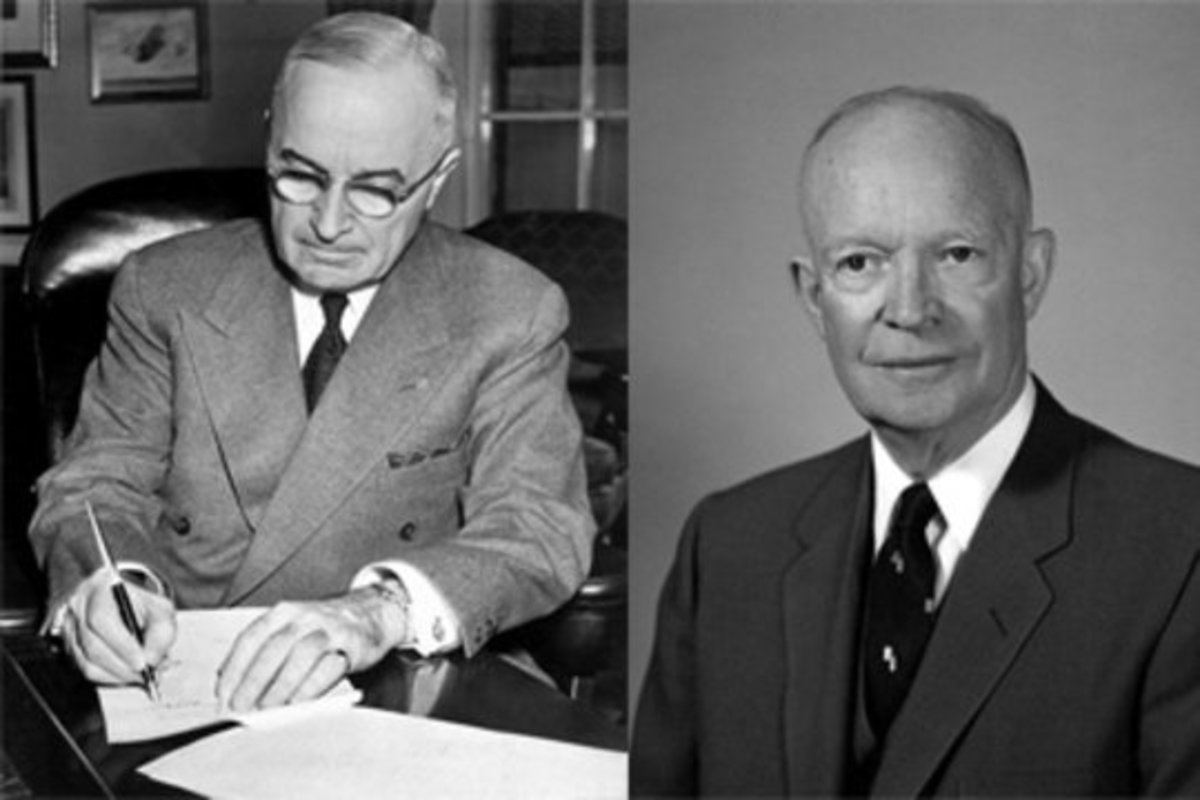



![American Politics: Corruption In Politics and Business [277*2]](https://usercontent1.hubstatic.com/12889900_f120.jpg)